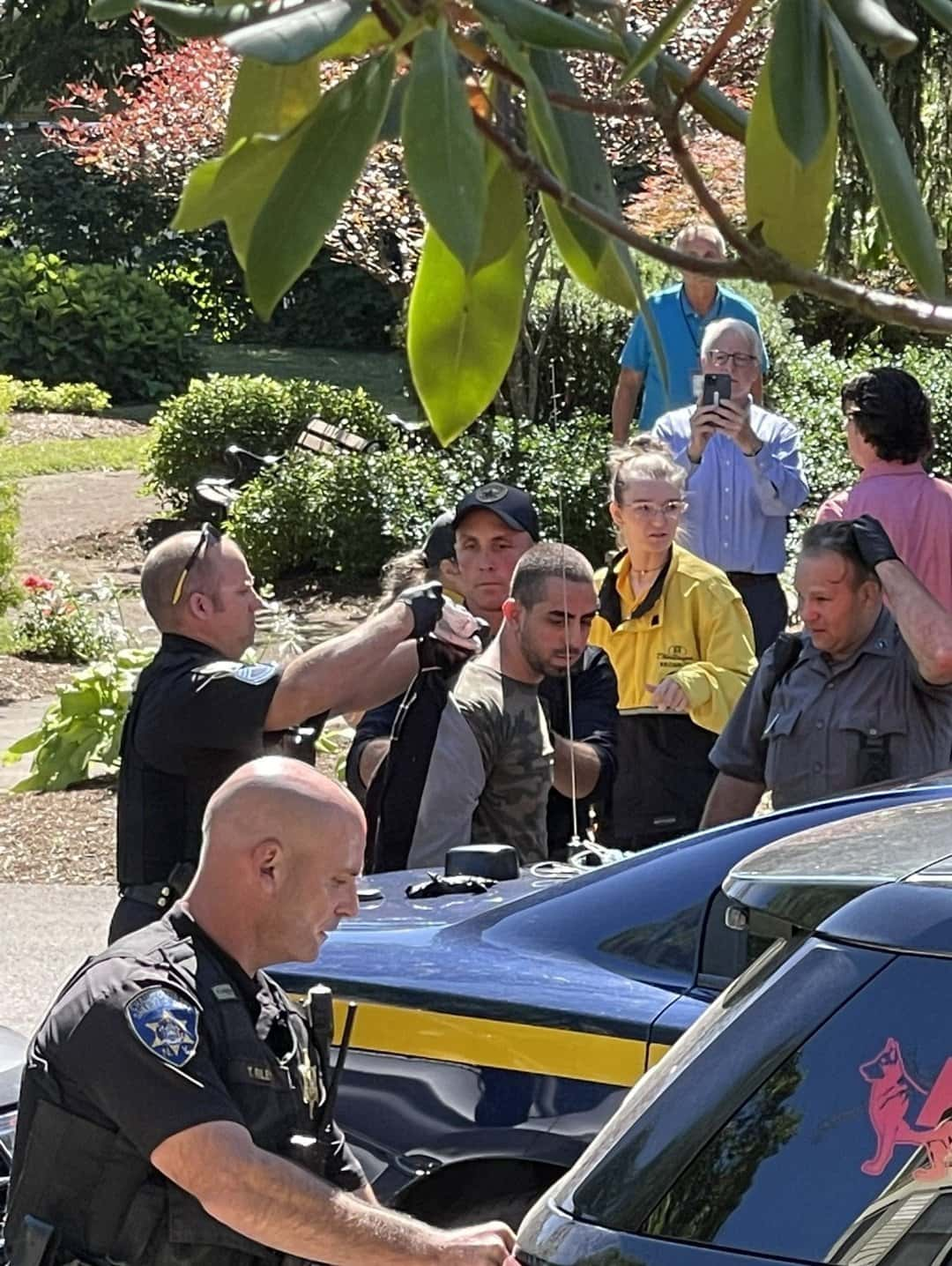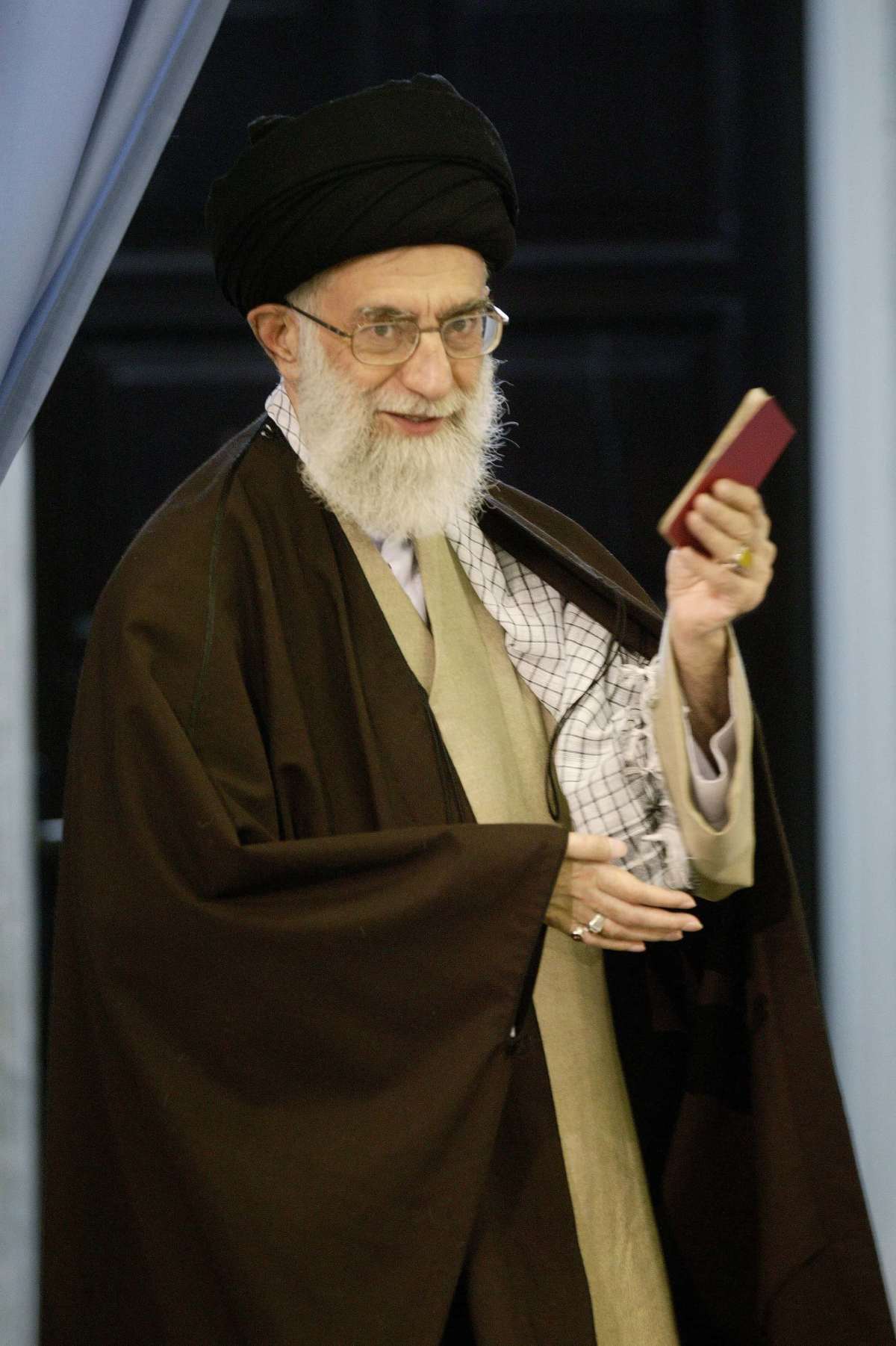‘Fatwa fired like a bullet’: Iran’s Ayatollah Khamenei hails Salman Rushdie stabbing

CHAUTAUQUA, NEW YORK: Iran supporters have been celebrating the heinous attack on Salman Rushdie, who was stabbed up to 15 times, including once in the neck. Rushdie, 75, was stabbed by Hadi Matar, 24, as he was being presented to the stage for the CHQ 2022 event in Chautauqua, near Buffalo in upstate New York, on Friday, August 12 morning. Right after the attack, Rushdie was airlifted to a hospital in Erie, Pennsylvania, where he underwent emergency surgery.
After Salman Rushdie’s book ‘The Satanic Verses’ sparked outrage among Muslims in Britain, Iran’s leader Ayatollah Ruhollah Khomeini issued a fatwa - a death sentence - in 1989. The book allegedly insulted the Prophet Mohammed and The Quran, prompting the leader to call for Rushdie's death and to alert Muslims to those who could kill him if they couldn't. Now, according to a Daily Mail report, Iran's leader Ayatollah Khamenei, praising the stabbing of Salman Rushdie, has said the fatwa against the Satanic Verses author was ‘fired like a bullet’ that won’t rest until it hits its target.
RELATED ARTICLES
Former Japanese PM Shinzo Abe, 67, dies after being shot during campaign speech
JK Rowling 'death threat' video: Outrage after Twitter allows trans activist's sinister post
Government supporters claimed that it is Khomeini's fatwa finally coming to fruition after 33 years. Some said they hoped the author, who was knighted in Britain in 2007 "for services to literature," would die as a result of the brutal attack.

Others warned that those considered enemies of the Islamic Republic would suffer the same fate as him. Conservative Iranian pundit Keyvan Saedy wrote on Twitter, "This deserves congratulation: God willing, we will celebrate Salman Rushdie going to hell soon.''
Hossein Saremi, a conservative social media activist, added that a ''lion had beaten Rushdie and that the attacker was part of 'Islam's soldiers without borders. Revenge may be delayed, but it will inevitably happen''. Seyed Mohammad Marandi, a senior adviser to Iran's nuclear-negotiating team, stated that he will not shed a tear for the writer "who spouts endless hatred and contempt for Muslims and Islam."

Several accounts associated with the Revolutionary Guards, which Matar allegedly supported, openly boasted about the attack. Syria News wrote on Facebook, "The order was carried out at a place they never thought about. It's not important if he doesn't die; it's important that they understand the battle is not over.'' According to Eghtesad Salem, a conservative news website, the attack sends a clear message to American officials. They would be pursued for the assassination of Iran's top general, Qassim Suleimani, who was killed in a US airstrike in January 2020.
The fatwa, or ''spiritual opinion'', came after a wave of book burnings in Britain and rioting across the Muslim world that killed 60 people and injured hundreds more. Rushdie was subjected to 24-hour security from 1989 to 2002, at the expense of the British taxpayer, after a $3 million bounty was placed on his head. He was forced to go into hiding for a decade while under police protection, and he previously stated that he received a "sort of Valentine's card" from Iran each year reminding him that the country had not forgotten its vow to kill him.
Rushdie even went by the pen name Joseph Anton, a combination of the first names of two of his favorite writers, Joseph Conrad and Anton Chekhov. The fatwa also resulted in the murder of the book's Japanese translator, Hitoshi Igarashi, as well as the targeting of the book's translators and publishers in Turkey, Norway, and Italy, as well as worldwide riots and book-burnings, while 'The Satanic Verses' was banned in many countries.
Rushdie once told DailyMail, "'Being under the fatwa was a jail, but I think that one of the problems is that from the outside it looked glamorous, as I sometimes showed up in places in Jags with people jumping out to open the door and make sure you get in safely and so on. Looks of who the hell does he think he is? Well, from my side it felt like jail". "If I had simply wanted to trade on an insult to Islam I could have done it in a sentence rather than writing a 250,000-word novel, a work of fiction", he added.
During the fatwa, he lived in constant fear, believing that his ex-wife Clarissa Luard and their son Zafar, who was nine at the time, had been assassinated or kidnapped. In 1998, Iran's reformist president relaxed the fatwa and stated that the country had no intention of tracking down and killing Rushdie. Rushdie's 42-year-old son Zafar, who lives in London, is aware of the incident, and his father was seen being transported by air ambulance following the attack.










